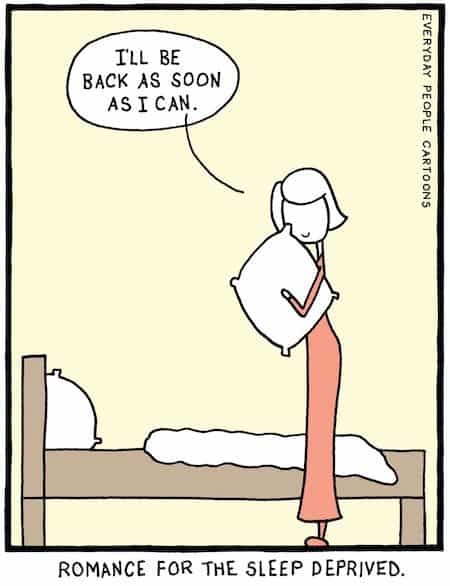Stress is a feeling of pressure or tension. As well as persistent responsibilities and obligations, stress can be the result of physical factors like illness, injury, or sleep deprivation.
When you're stressed, your body releases a hormone called cortisol. Cortisol is a stress hormone. This hormone can make it hard not only to drift off to sleep, but stay asleep. It can also cause you to feel tired and irritable in the mornings.

Dealing with Stress
Being frequently stressed can lead to serious health problems like heart disease, high blood pressure, and depression. It's essential, then, that you find ways to manage your stress so that it doesn't impact your health or your quality of life.
A highly stress-filled life can lead to other medical problems like migraines which require medication such as Sumatriptan migraine treatment. If you can avoid taking medicines by avoiding stress, you're setting yourself up for success.
The Causes of Stress-Related Sleeplessness
It's the middle of the night, and surprise surprise, you're wide awake. Again. You've been tossing and turning for hours, your mind racing with worry over an upcoming presentation at work or issues at home.
Stress can have a way of wreaking havoc on our sleep, leaving us feeling exhausted during the day and restless at night.
What exactly is stress, and how does it impact your sleep?
Stress is your body's response to any type of demand or threat, real or perceived.
When you’re stressed, the body releases hormones like cortisol and adrenaline that prepare us for the ‘fight or flight’ response.
This evolutionary response is meant to protect us in dangerous situations, but it can also be brought on by modern-day stresses like work deadlines or relationship problems.
Relaxation Techniques to Promote Sleep
There are all sorts of ways to relax and promote sleep. Some people find that they are able to sleep better when they read or listen to calm music before they go to bed. Others find that a hot bath or shower helps them fall asleep.
For some people, the key to getting a good night’s sleep is to create a routine and stick to it as closely as possible. This means going to bed and waking up at the same time each day, even on weekends.
You may also want to try avoiding caffeine and alcohol in the evening, as well as working out too close to bedtime.
If you've consistently found it hard to enter and remain in a dream state, it is advised to get up and move for a little while prior to going back to sleep. It might help if you read or listen to soothing music, too.
When to See a Doctor about Stress and Sleep
If you're feeling stressed and having trouble sleeping, you may wonder if you need to see a doctor.
If your stress impacts your daily life and makes it difficult to function, it's time to see a doctor. This is especially true if you're not getting enough sleep or your sleep patterns have changed drastically.
Your doctor is there to help you manage your stress levels and may recommend lifestyle changes or medication to help improve your sleep. If you're struggling to cope with stress, don't wait to get help.

